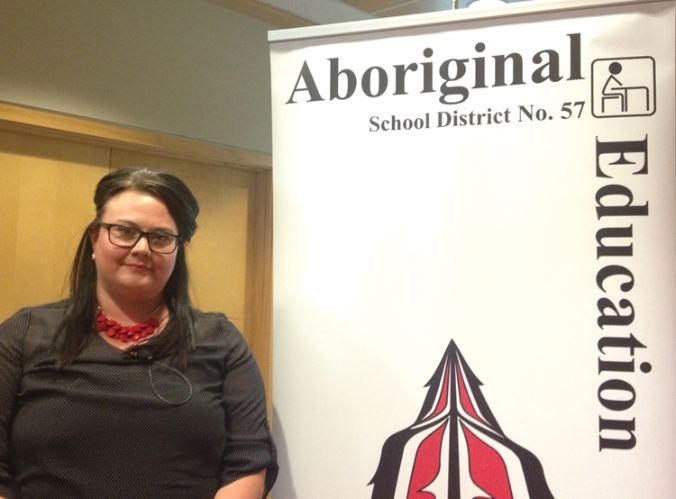The proof is in: aboriginal kids just needed some cultural context and sense of inclusion in school in order to make the grade. A conference on Friday aims to take that to the next level in School District 57.
A Euro-centric education system consistently produced underwhelming First Nations graduates. Since the time residential schools were phased out, only slim percentages of aboriginal kids went on to graduate from high school and thus take advantage of that certification to gain post-secondary degrees and meaningful employment.
In 2009, the aboriginal graduation rate in SD57 was 32 per cent.
In 2015, that number exploded to 61 per cent, after years of dedicated efforts by the provincial government and individual school districts to address the dearth.
Now, a provincewide new curriculum will implement a degree of First Nations content across all subjects, and some amount of aboriginal history (including residential school atrocities) will form the content in history and social studies courses. For the first time in B.C. history, the founding cultures will be noticeably reflected in school materials and classroom dialogue.
To help with these transitions and celebrate the dawning of a new education age in B.C., the SD57 Aboriginal Education (AbEd) department is holding a one-day workshop for teachers, administrators, support staff, bus drivers, custodians, everyone involved in local education in any way.
It is the largest professional development session in AbEd history - 750 seats available. Although it is optional to attend, the early signup numbers were huge.
"It is so exciting for us to see that response, telling us that people in the education system across our district are really interested in seeing those outcomes get as good as they can be, and changing the relationship between aboriginal culture and mainstream culture from now on," said Shelly Niemi, AbEd manager. "People can make a difference. It's not about books and systems, it is about people. So come, be a part of it, because we've already seen those numbers turn around like never before because people took it upon themselves to implement a new approach."
The event takes place at the Civic Centre from 8 a.m. to 4 p.m.,
so there is plenty of parking available and also buses running from each high school parking lot (loading at 8 a.m., departing at 8:30 a.m.) so participants can park and ride close to home.
The event will be the debut for Crow Brings A Message, a locally made documentary about aboriginal learning and learners. It has not been seen by the public since its completion.
Guest speakers will also share their expertise, people like author and professor Marie Battiste, and First Nations Child & Family Caring Society boss and author (and former Kelly Road secondary school student) Cindy Blackstock.
"We have already had a look at the new curriculum, it is being introduced in phases, and we are here as a department to help schools and administrators and individual teachers to handle the changes as they come," said Niemi.
"I don't sense any pushback, but there are questions because it is an unknown. How do you best convey this to students? How do you remain respectful when it's not the teachers' own background? What are the appropriate resources to supplement the curriculum? How do we as teachers and administrators talk about residential schools if we haven't had personal contact with that history? Not every aboriginal student in your classroom is necessarily from the same First Nation, so how does that get handled respectfully for everyone?
"These are really practical thoughts and sensible questions, and this symposium is all about getting as many people into the same room as possible to efficiently answer some of those questions. We also expect the conversation will cause new questions to come up, and that's great, it is a process we are here to support all along the way. We want teachers to feel, and truthfully, that they can confidently do their work with this new material."
This school year, about 66,000 students in the province are self-identified as being of aboriginal descent. That accounts for approximately 10.5 per cent of the overall student population.
In SD57, Niemi estimated the local numbers to be 3,294 aboriginal students amounting to 28 per cent of the student population. If only 32 per cent of those were to graduate, she said, imagine the economic drag that causes and imagine the lost opportunity for such a large number of people to contribute as business owners, employees in coveted jobs, motivated volunteers, community leaders, etc.
The most important point, said Niemi, is boosting aboriginal student success comes at no expense in the success of non-aboriginal students and may well enhance all students' outcomes.
Abyone wishing to attend the symposium or know more about AbEd initiatives can call 250-562-4843 or visit the department's website at www.abed.sd57.bc.ca.



